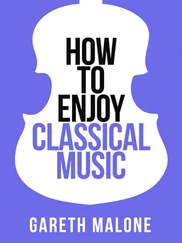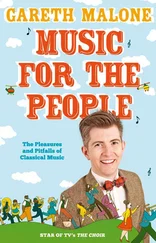STEPHEN FRY - OF CLASSICAL MUSIC
Здесь есть возможность читать онлайн «STEPHEN FRY - OF CLASSICAL MUSIC» весь текст электронной книги совершенно бесплатно (целиком полную версию без сокращений). В некоторых случаях можно слушать аудио, скачать через торрент в формате fb2 и присутствует краткое содержание. Жанр: на английском языке. Описание произведения, (предисловие) а так же отзывы посетителей доступны на портале библиотеки ЛибКат.
- Название:OF CLASSICAL MUSIC
- Автор:
- Жанр:
- Год:неизвестен
- ISBN:нет данных
- Рейтинг книги:5 / 5. Голосов: 1
-
Избранное:Добавить в избранное
- Отзывы:
-
Ваша оценка:
- 100
- 1
- 2
- 3
- 4
- 5
OF CLASSICAL MUSIC: краткое содержание, описание и аннотация
Предлагаем к чтению аннотацию, описание, краткое содержание или предисловие (зависит от того, что написал сам автор книги «OF CLASSICAL MUSIC»). Если вы не нашли необходимую информацию о книге — напишите в комментариях, мы постараемся отыскать её.
OF CLASSICAL MUSIC — читать онлайн бесплатно полную книгу (весь текст) целиком
Ниже представлен текст книги, разбитый по страницам. Система сохранения места последней прочитанной страницы, позволяет с удобством читать онлайн бесплатно книгу «OF CLASSICAL MUSIC», без необходимости каждый раз заново искать на чём Вы остановились. Поставьте закладку, и сможете в любой момент перейти на страницу, на которой закончили чтение.
Интервал:
Закладка:
Elsewhere in 1913, the first Charlie Chaplin movies are beginning to appear and Benjamin Britten was born. In perhaps the most jarring juxtaposition, though, the hit song of the year becomes 'It's a Long Way to Tipperary'. So, on the one hand, you have The Rite of Spring, on the other 'It's a Long Way to Tipperary'. Fab. I guess that would make for a pretty difficult round of'Singing the words of one song to the tune of another'. Bags not me, Humph.
You'd be forgiven for thinking, considering the big music of 1913 - The Rite of Spring, that is, not 'Tipperary' - that when war did finally break out a year later, the heady, noisy world of music would get even headier and noisier. Well, as I say, you're forgiven for thinking that. 1914 goes on to produce two of the softest, sweetest moments in all this music we call classical - The Banks of Green Willow and The Lark Ascending, both pieces that could only have been written by Englishmen.
Both pieces are very much products of their time. Vaughan Williams's The Lark Ascending is a glorious piece of picture painting, with a solo violin taking the part of the eponymous bird, swooping, soaring and hovering, yet all time preserving the inner integrity of the music. The Banks of Green Willow was die product of VW's friend, George Butterworth, and, indirectiy, the product of Eton, Oxford and die Royal College of Music. George Sainton Kaye Butterworth, to give him his glorious full name, was twenty-nine when he wrote his most famous piece. At die outbreak of the war, he immediately signed up. Almost as soon as he got to die front, he was decorated for bravery, but was then killed on die Somme. He received his Military Cross posthumously. The age of innocence is over. Let's get to 1915.
OH, WHAT A LOVELY…
O
bviously, in terms of context, war dominates. Last year, battle-wise, it was Menur, Mons, Tanneburg, Marne and die first battle of Ypres. This year, again, it's Ypres, die four battles of Isonzo, die landings at Gallipoli, die first zeppelin attacks on London and die submarine attack on Le Havre. Keeping people sane or occupied or botli were films like The Lamb widi Douglas Fairbanks, The Tramp witii Charlie Chaplin and even Birth of a Nation by DW Griffith. Ivor Novello does his bit with the hit song 'Keep the Home Fires Burning', while die big books of '15 are John Buchan's The Thirty-Nine Steps and Somerset Maugham's Of Human Bondage. In art, Raoul Dufy paints his Homage to Mozart, Chagall paints The Birthday, and Marcel Duchamp comes up with the first canvases of what comes to be called Dada. In fact, just to digress for a moment,
[Editor's warning - joke approaching:] /…I've always felt that… [Yes, definitely joke on way]
…if I were ever to paint… [locked on…]
…I'd be like Duchamp… [ramming speed]
… because… because… [going into cinema slow-mo]
…because…MY ART BELONGS TO DADA! [there she blows] Sorry, I'm OK now. One final thing, diough, on 1915. Actually a couple of things. First, Einstein publishes his General Theory of Relativity. This isn't the cute one, die E =mc2 one. This one is a twist on die concept of space-time, as it were. If I could explain briefly - ad libbing wildly here - you see, he basically said diat, well, its geometrical properties were to be conceived as modified locally by die presence of a body…WITH MASS. Yeah? And that a planet's orbit round the sun, as observed in three-dimensional space, arises from its natural trajectory in modified time (obviously!) and tiiat diere is no need -NO NEED - to invoke gravity. Er, as Newton did. From the sun. Acting on a planet. Simple really, huh? And worth every penny of Einstein for Dummies.
Secondly, diough, and perhaps more pertinentiy to this book, die otiier big thing about 1915 comes from Finland. Here, a fifty-year-old Sibelius is struggling to overcome his creative block. The war has stopped him travelling - he'd been touring Europe and America - and it appears also to have stopped him composing. Well, a little. He would eventually finish only one piece during die whole of the First World War. But then again… what a piece!
People who love dieir labels have called it 'his Eroica\ (As I've said before, why does everybody have to have an Eroicd» Which reminds me, I must write mine.) The final movement is simply majestic. In fact, forgive me for going all American on you here but the final movement is awesome. Just, like, kinda, you know - awesome. Not just tiiat intractable tune, but also that ending. That Victor Meldrew of an ending, so mind-boggling it makes me short of breath, clipping die words '7 don't believe if even on die umpteentii hearing. The ending has been called 'Thor swinging his hammer'. It has also been called 'frigging difficult to get everyone playing together' by many a fledgling conductor, but best not get into that. This whole symphony is resolute, staunch, unbending, inexorable and ultimately fine, in the best sense of the word.
But where to from 1915? Well, 1916 would seem like the most obvious place. I would concur, and posit that there is no better place to start than with Parry. If you get my thrust. I think it's fair to say that Hubert Parry had the big hit of 1916, unless you count Chu Chin Chow, and, I have to say, I don't. Parry was a Professor of Music at Oxford when he came up with what is somewhat unfairly interpreted as his 'one hit', 'Jerusalem'. I mean, have people simply forgotten the incidental music to Ogilvy's Hypatia? Well, yes, frankly, they have. Despite the fact that our Hubert went on to complete a massive range of songs, cantatas and even symphonies, today he seems to be judged on just 'Jerusalem' and the occasional choral concert outing of 'I Was Glad' or 'Blessed Pair of Sirens' (known when I was a lad as 'Blessed Pair of Nylons', I don't know if it still is). True, 'Dear Lord and Father of Mankind' is still sung on Sundays, but lots of people don't even know it's him. It's a crying shame, and one which I insist on doing something about RIGHT NOW. OK, maybe later.
Sorry. That's life. Haven't got time to sit around feeling sorry for a Victorian country gent. Besides, give it a couple of years - to 1918, in fact - and the 'Votes for Women' campaign takes rather a shine to old 'Jerusalem'. It's hardly surprising, considering Mrs Parry was one of the campaign's leading lights. Give it a few decades, and you'll have every Women's Institute using it as their very own 'music to get your kit off to' as they try to whip up interest in their glossy calendars and broccoli lectures.
Back to the war, and it's getting hard to keep up. There was Verdun, the Somme, and - over and over again - Isonzo. The war just keeps on keeping on, and, along with it, the first theories of the idea of 'sheU shock', postulated by FW Mott. Elsewhere, James Joyce has published the semi-autobiographical Portrait of the Artist as a Young Man, Dada is now HUGE - particularly in Zurich - and jazz has broken free of New Orleans and is sweeping the USA. All that and Yehudi Menuhin was born. It's said the doctor slapped him on the backside and he didn't cry - he just asked for an A. 1917, now, and let's go to the twenty-six-year-old composer who appears to have looked like a goldfish. Er, smoking a cigar. True, honest! Take a look at a picture.
They say he forgot what music he was writing every three and a half seconds.© (OK, so that's not true.) The man in question is Sergei Prokofiev, and this year, 1917, he produced his first big work, confusingly called the Classical Symphony. This delicately drawn piece was, despite its reflective nature, the music of revolution - the October Revolution, to be precise. Actually, to be more precise, I should say the November Revolution, because the October Revolution happened in November, the 7th, in fact. The reason it was called the October Revolution was that, by the terms of the old Russian calendar, it was still only October 26th. (Is that perfectly clear?)
Читать дальшеИнтервал:
Закладка:
Похожие книги на «OF CLASSICAL MUSIC»
Представляем Вашему вниманию похожие книги на «OF CLASSICAL MUSIC» списком для выбора. Мы отобрали схожую по названию и смыслу литературу в надежде предоставить читателям больше вариантов отыскать новые, интересные, ещё непрочитанные произведения.
Обсуждение, отзывы о книге «OF CLASSICAL MUSIC» и просто собственные мнения читателей. Оставьте ваши комментарии, напишите, что Вы думаете о произведении, его смысле или главных героях. Укажите что конкретно понравилось, а что нет, и почему Вы так считаете.










